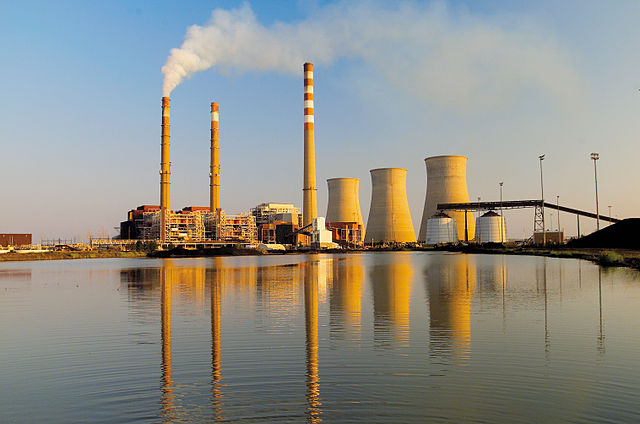
Trump budget would gut environment, science programs
by Matthew Daly, The Associated Press

The president's proposed budget would slash EPA spending 31 per cent and eliminate funds for the Clean Power Plan, among many other cuts

The Trump budget would eliminate the Clean Power Plan, which takes aim at greenhouse gas emissions from coal-fired power plants. The Paradise Fossil Plant in Kentucky seen here. PHOTO: Tennessee Valley Authority/Flickr
WASHINGTON—President Donald Trump’s proposed budget would gut programs for science and the environment, reflecting the Republican’s rejection of mainstream science.
Trump has frequently called climate change a “hoax,” and his EPA chief, Scott Pruitt, said last week he does not believe carbon dioxide is a primary contributor to global warming. Trump’s proposed budget would cut the Environmental Protection Agency budget by 31 per cent—nearly one-third—and eliminate more than 3,200 jobs.
That amounts to 20 per cent of the agency’s current workforce of 15,000.
White House Budget Director Mick Mulvaney said the Trump administration is cutting spending for climate change efforts because “we consider that to be a waste of your money.”
Speaking to reporters March 16, Mulvaney said: “I think the president is fairly straightforward. We’re not spending money on that.”
The EPA budget would drop to $5.7 billion from its current $8.1 billion.
Trump’s proposed budget goes far beyond EPA cuts.
It would eliminate funds for the Clean Power Plan, former President Barack Obama’s signature effort to address climate change by restricting greenhouse gas emissions from coal-fired power plants.
Four different NASA Earth science missions would be shut down, including one championed by former Vice-President Al Gore, a leading climate change activist.
The plan also would eliminate funding for the State Department’s Global Climate Change Initiative and the U.N. Green Climate Fund, which help developing nations address climate change. It also would cut $250 million from National Oceanic and Atmospheric Administration grants that help coastal communities adapt to climate change, deal with invasive species and maintain healthy water and fisheries.
The budget also eliminates funding for regional programs to clean up the Great Lakes, Puget Sound and Chesapeake Bay, as well as Energy Star, a popular program to promote efficiency in home appliances. Midwest Republicans in Congress were upset with the Great Lakes program cut, while Democrats denounced the overall plan in stark language.
“Literally and figuratively, this is a scorched-earth budget that represents an all-out assault on clean air, water and land,” said Gina McCarthy, who led the EPA in Obama’s second term.
Margie Alt, executive director of Environment America, called the budget proposal “dirty and dangerous” and said it would cripple U.S. efforts to combat climate change.
“It is basically a ‘get out of jail free card’ for polluters,” Alt said.
But Thomas Pyle, president of the American Energy Alliance, an advocacy group backed by billionaire brothers Charles and David Koch, said Trump’s budget “offers a much-needed resetting of the relationship between the federal government, the states and the American people.”
By slashing budgets for the EPA, Interior, Energy and other departments, Trump is taking needed steps to “eliminate the architecture of President Obama’s politically motivated climate action plan” and re-emphasize the core mission at federal agencies, Pyle said.
Waleed Abdalati, NASA’s former chief scientist and now head of an environmental science research institute at the University of Colorado, said Trump’s budget “really makes a troubling statement.” The only reason to cancel the already-launched satellite championed by Gore “is not money—it’s just you don’t like it,” he said.
Trump and other administration officials are wrong if they think ignoring global warming will make it go away, Abdalati added.
“Climate change will never disappear,” he said. “It’s not changing because we’re studying it. We’re able to meet the challenges associated with it because we’re studying it. The Earth will go on doing what it does.”
—AP writers Seth Borenstein and Catherine Lucey contributed to this story